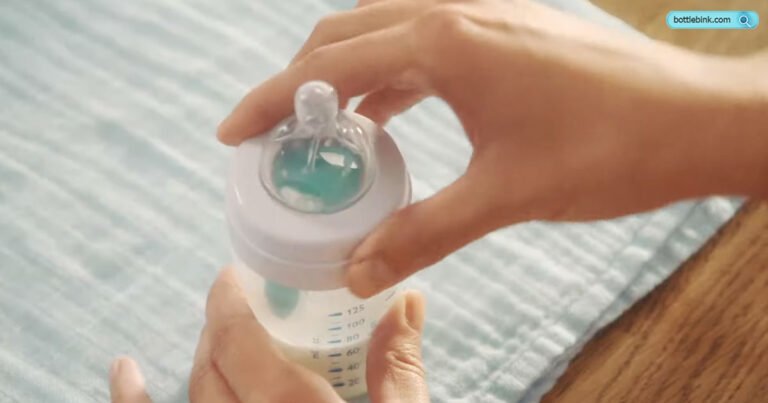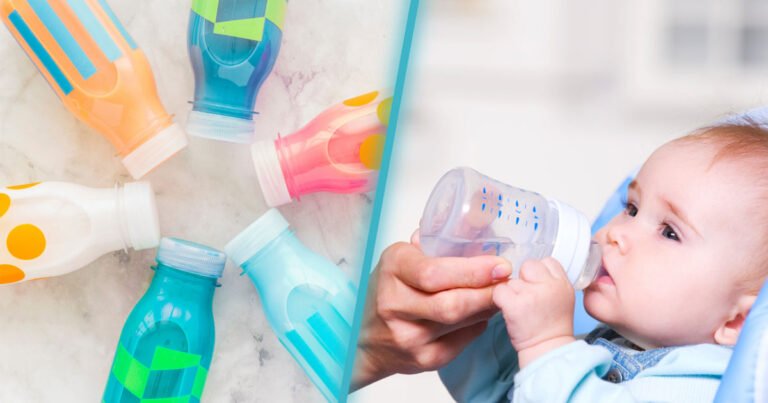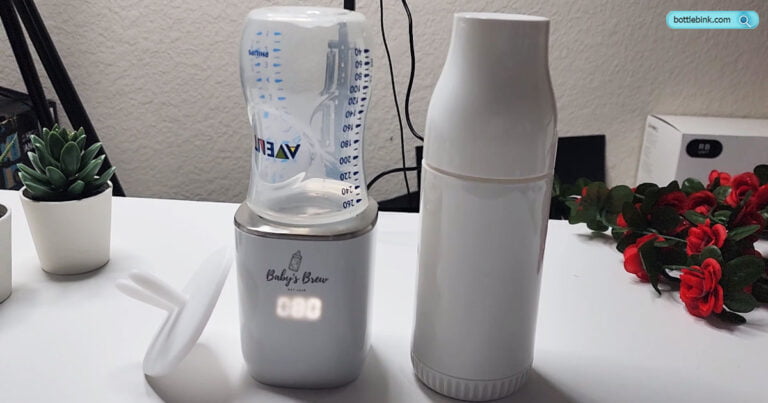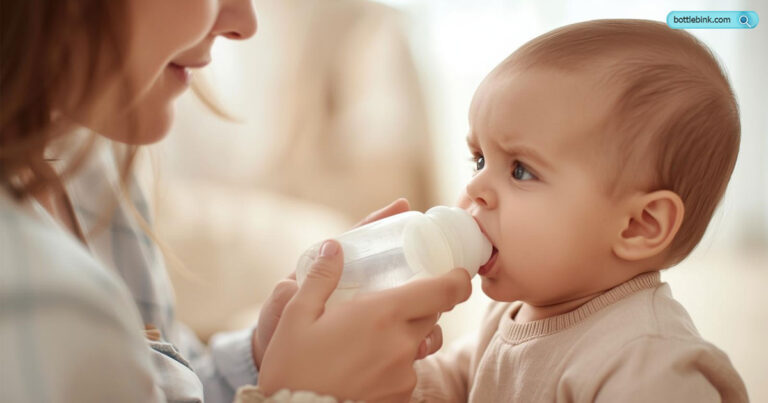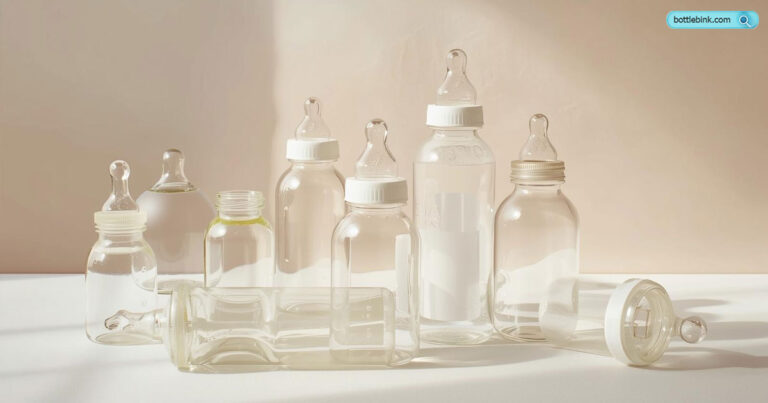How Long are Baby Bottles Good For? Expert Tips Revealed
Are you wondering how long your baby bottles stay safe and fresh? Knowing the right time to use or replace them can protect your little one from harmful germs and keep feeding stress-free.
You’ll discover simple tips to keep your baby’s bottles clean and fresh, so you can feel confident every time you feed your child. Keep reading to learn exactly how long baby bottles are good for and how to make sure they’re always safe to use.
Shelf Life Of Baby Bottles
Knowing the shelf life of baby bottles helps keep your baby safe. Baby bottles do not last forever. Over time, they can wear out or become unsafe to use. Proper care and timely replacement are important. This section explains how materials and manufacturer guidelines affect bottle durability.
Materials And Durability
Baby bottles come in different materials like plastic, glass, and silicone. Plastic bottles can get scratched or cloudy after months of use. These scratches can hold germs and make cleaning hard. Glass bottles last longer but can break if dropped. Silicone bottles are soft and flexible but can wear out too. The material affects how long a bottle stays safe and strong.
Look for signs of damage such as cracks, discoloration, or warping. These signs mean it is time to replace the bottle. Regular inspection helps keep bottles safe for feeding.
Manufacturer Guidelines
Manufacturers provide specific instructions on how long to use their bottles. Most suggest replacing bottles every 6 to 12 months. They also guide how to clean and store bottles safely. Following these instructions helps maintain bottle quality. Ignoring guidelines can risk your baby’s health.
Always read the label or manual that comes with the bottle. It offers clear advice on care and replacement. This helps keep feeding safe and comfortable for your baby.
Storage Tips For Baby Bottles
Proper storage of baby bottles keeps your baby safe and healthy. It stops germs from growing and keeps milk fresh longer. Follow simple steps to store bottles right. This helps avoid waste and keeps feeding times smooth.
Cleaning Before Storage
Rinse bottles right after use. Use warm water and mild soap. Clean all parts, including nipples and lids. Use a bottle brush to reach inside. Rinse well to remove soap. Let bottles air dry completely. Do not use towels to dry. Drying with towels can add germs.
Ideal Storage Conditions
Store bottles in a clean, dry place. Avoid damp or warm spots. Keep bottles away from direct sunlight. Use a covered container to protect from dust. Store bottles upright to prevent leaks. Refrigerate milk-filled bottles within two hours. Use refrigerated milk within 24 hours. Do not freeze bottles with formula or breast milk in them.
Signs To Replace Baby Bottles
Knowing when to replace baby bottles is important for your baby’s health. Bottles wear out over time and may become unsafe. Watch for clear signs that show it’s time to get new ones.
Wear And Tear Indicators
Check the bottle for cracks or scratches. These can trap bacteria and germs. Look at the nipple for tears or holes. Damaged nipples can cause choking or leaks. Faded measurement marks make it hard to know how much milk is left. If the bottle smells strange even after cleaning, it may be time to replace it.
Health And Safety Concerns
Old bottles may release harmful chemicals. Plastic bottles can break down with time and heat. This can affect your baby’s health. Bottles that no longer seal properly can cause spills and messes. Using worn bottles increases the risk of infections. Always choose bottles that are BPA-free and safe. Replace bottles regularly to keep your baby safe and healthy.
Handling Prepared Formula And Milk
Handling prepared formula and milk carefully keeps your baby safe and healthy. Proper care stops harmful bacteria from growing. Knowing how long you can keep bottles is very important.
Storing and using bottles correctly helps keep milk fresh and nutritious. This section explains the time limits and best refrigeration methods.
Time Limits For Use
Use prepared formula or milk within two hours at room temperature. Bacteria can grow quickly after this time. If your baby does not finish the bottle, discard the leftover milk. Do not save it for later feedings. Prepared formula can stay in the fridge for up to 24 hours. Breast milk stored in the fridge lasts up to 4 days. Always label bottles with the time you made or stored the milk.
Proper Refrigeration Practices
Store bottles in the coldest part of the fridge, not in the door. The door temperature changes often and can spoil milk. Keep the fridge below 40°F (4°C). Use clean containers with tight lids to prevent contamination. Avoid freezing formula; it can change the milk’s texture. Breast milk can be frozen for longer storage but thaw it safely before use. Never refreeze thawed milk. Always warm bottles by placing them in warm water, not in the microwave.
Sterilization And Maintenance
Keeping baby bottles clean is very important for your baby’s health. Proper sterilization stops germs from growing. Regular maintenance keeps bottles safe to use longer. It also helps you avoid tummy troubles for your baby. Let’s explore the best ways to sterilize and care for baby bottles.
Effective Sterilization Methods
Boiling bottles in water for at least five minutes kills most germs. Electric steam sterilizers use steam to clean quickly and well. Microwave sterilizers are fast and easy for busy parents. Chemical sterilizing solutions also work by soaking bottles. Choose a method that fits your routine and bottle type.
Frequency Of Sterilization
Newborn bottles need sterilization before each use to stay safe. After three months, washing with hot soapy water is usually enough. Always sterilize bottles after illness or if they drop on the floor. Regular checks for cracks or damage help decide when to replace bottles. Clean bottles protect your baby every feeding.
Choosing Safe Baby Bottles
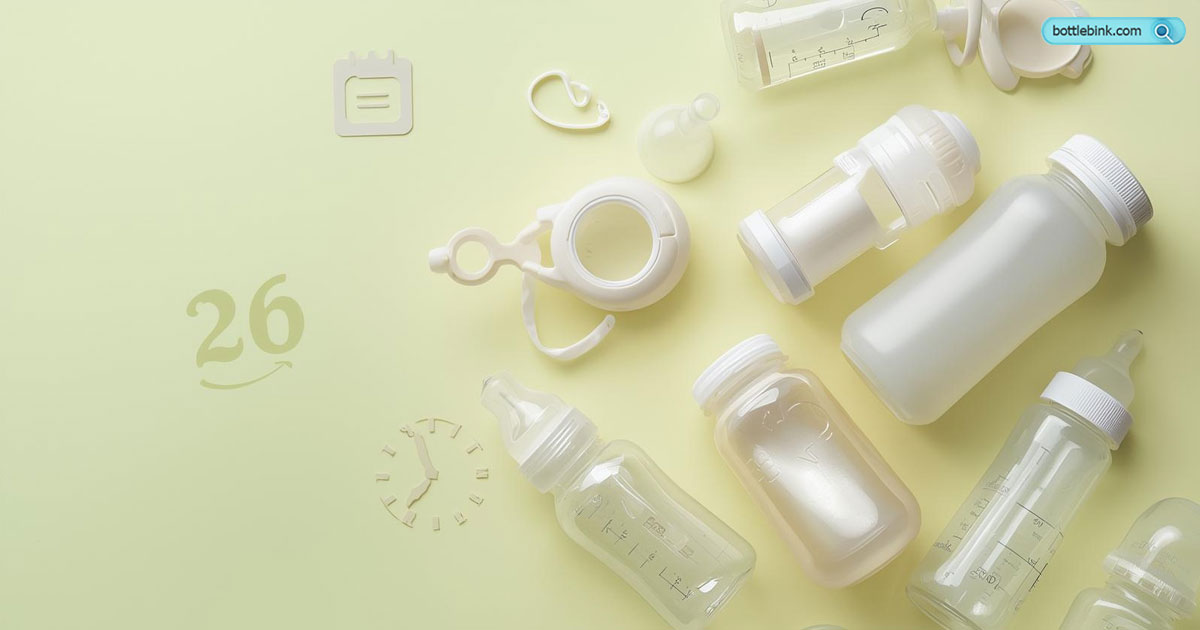
Choosing safe baby bottles is very important for your child’s health. Babies drink from bottles many times each day. The material and chemicals in the bottle can affect their safety. Parents must pick bottles free from harmful substances and easy to clean.
Not all bottles are the same. Some materials hold bacteria or chemicals that can harm babies. Choosing the right bottle helps keep your baby safe and healthy. It also makes feeding easier and less stressful for parents.
Bpa-free Options
BPA stands for Bisphenol A. It is a chemical used in some plastics. BPA can leak into liquids and harm babies. Many baby bottles now say “BPA-free.” These bottles do not have this chemical. They are safer for your baby.
Choosing BPA-free bottles reduces the risk of hormone problems. It is a smart choice for any parent. Look for clear labels that confirm the bottle is BPA-free. This small step protects your baby’s health every day.
Material Comparisons
Baby bottles come in different materials: plastic, glass, and silicone. Plastic bottles are light and unbreakable. Some plastics may contain chemicals, so choose BPA-free ones only.
Glass bottles are heavier but very safe. They do not hold smells or stains. Glass is easy to clean and last long. However, they can break if dropped.
Silicone bottles are soft and flexible. They are safe and easy to squeeze. Silicone does not break or crack easily. It is also free from harmful chemicals.
Each material has pros and cons. Consider safety, ease of use, and cleaning before buying. Always check for clear safety labels on the bottle.
Expert Tips For Longevity
Keeping baby bottles safe and clean is important for your baby’s health. Proper care can extend the life of bottles. Simple habits help keep bottles in good condition. Follow expert advice to make bottles last longer and stay safe for your baby.
Daily Care Routines
Rinse bottles right after feeding to stop milk from drying. Use warm, soapy water for washing every day. Clean all parts, including nipples and caps. Use a bottle brush to reach inside. Let bottles air dry on a clean towel. Avoid using harsh cleaners or bleach. Sterilize bottles regularly to kill germs and bacteria.
When To Discard Bottles
Throw away bottles if cracks or scratches appear. These can trap germs and cause leaks. Replace nipples if they become sticky or cracked. Watch for discoloration or strange smells. Damaged bottles may harm your baby’s health. Old bottles lose their shape and safety. Change bottles every few months for best results.
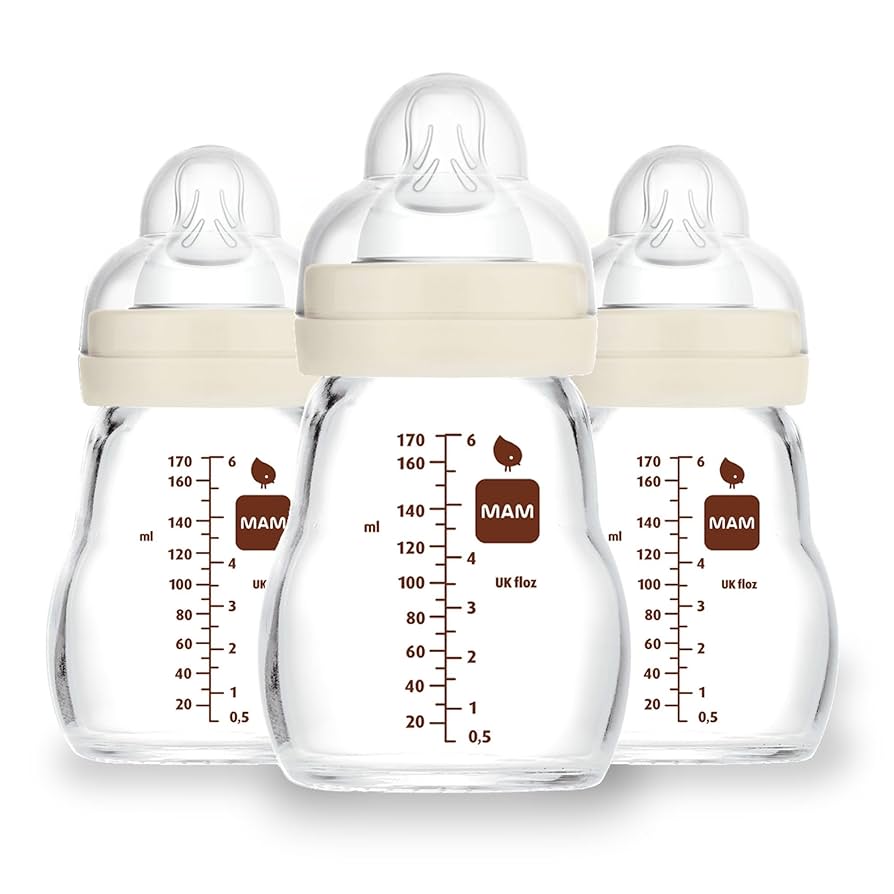
Credit: www.amazon.com
Frequently Asked Questions
How Long Can Baby Bottles Be Stored Safely?
Baby bottles can be stored safely for up to 24 hours if refrigerated. Use freshly prepared milk within this time to ensure baby’s health and nutrition.
When Should I Discard Leftover Milk In Bottles?
Discard leftover milk in bottles after 1 hour at room temperature. Bacteria can grow quickly, making the milk unsafe for your baby.
Can I Reuse Baby Bottles Without Washing?
No, always wash baby bottles after each use. Proper cleaning prevents harmful bacteria and keeps your baby safe from infections.
How Do I Store Breast Milk In Bottles?
Store breast milk in clean bottles, refrigerated up to 4 days. Freeze for longer storage, but use within 6 months for best quality.
Conclusion
Baby bottles last only for a short time after use. Clean them well to keep your baby safe. Throw away bottles that look cracked or worn out. Store bottles in a cool, dry place. Always check the bottle’s smell and look before use.
Using fresh bottles helps prevent germs and illness. Keep track of how long bottles have been used. This simple care keeps feeding times safe and happy. Remember, your baby’s health depends on clean bottles. Take small steps to protect your little one every day.

